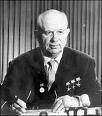In the wake of the Cold War, the Central Asian region was very important due to its extensive oil reserves, the fact that it produces three quarters of the World's opium which produces millions of dollars worldwide.
With the disintegration of the Soviet Union, a new rush in opium production unfolded because many of the powerful business syndicates in the former
The ISI's intelligence military-network keep on working even in the wake of the Cold War. The CIA continued to support the Islamic "jihad" out of
At the same time, Islamic missionaries of the Wahhabi sect from
After the withdrawal of Soviet troops in 1989, the civil war in
In 1993, JUI entered the government coalition of Prime Minister Benazzir Bhutto. Ties between JUI, the Army and ISI were established. In 1995, with the downfall of the Hezb-I-Islami Hektmatyar government in Kabul, the Taliban not only instated a hardline Islamic government, they also handed control of training camps in Afghanistan over to JUI factions.
In other words, backed by
The
Years later, after the terrorist attacks on the World Trade Centre and the Pentagon, the Bush administration concluded without supporting evidence, that Osama bin Laden and his al-Qaeda organization were prime suspects. All of this were the results and after math of teh Cold War.

















